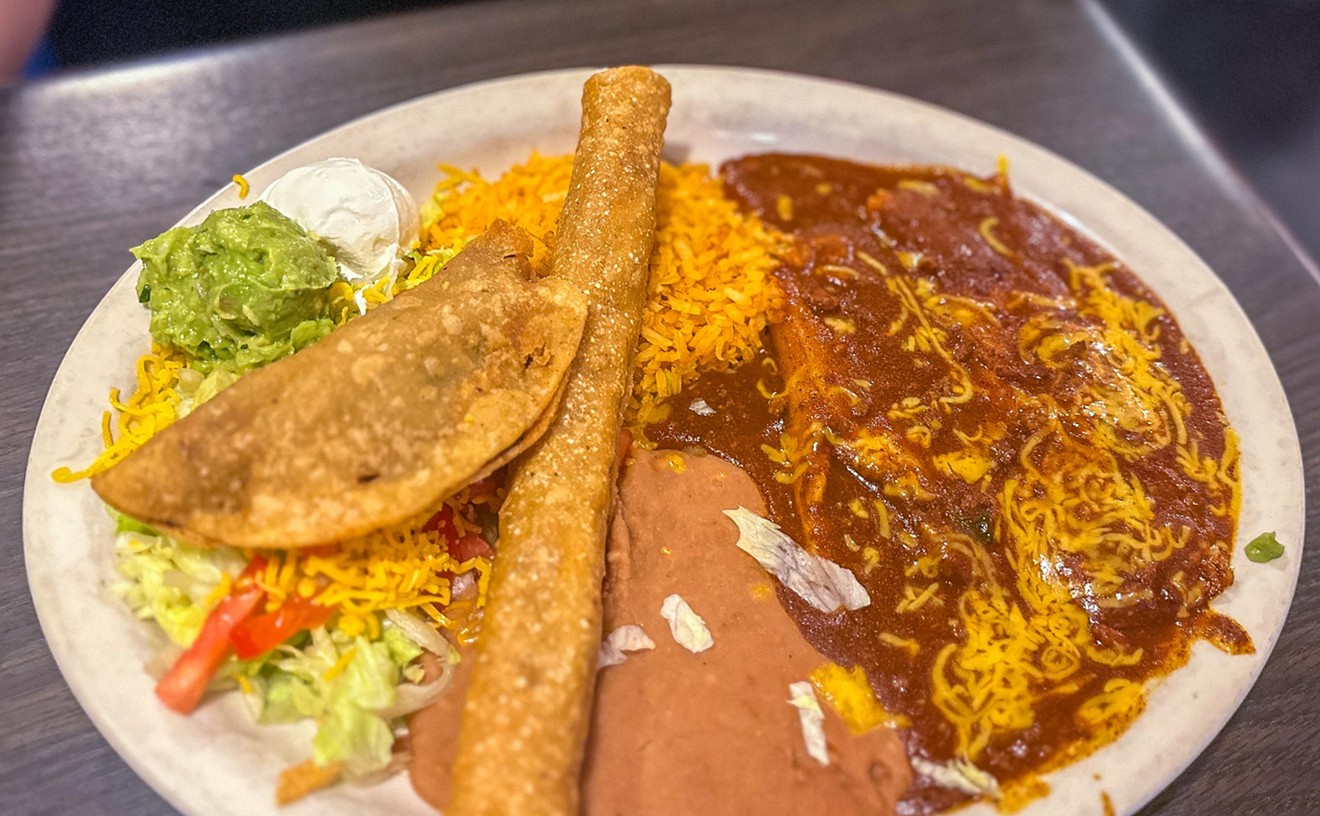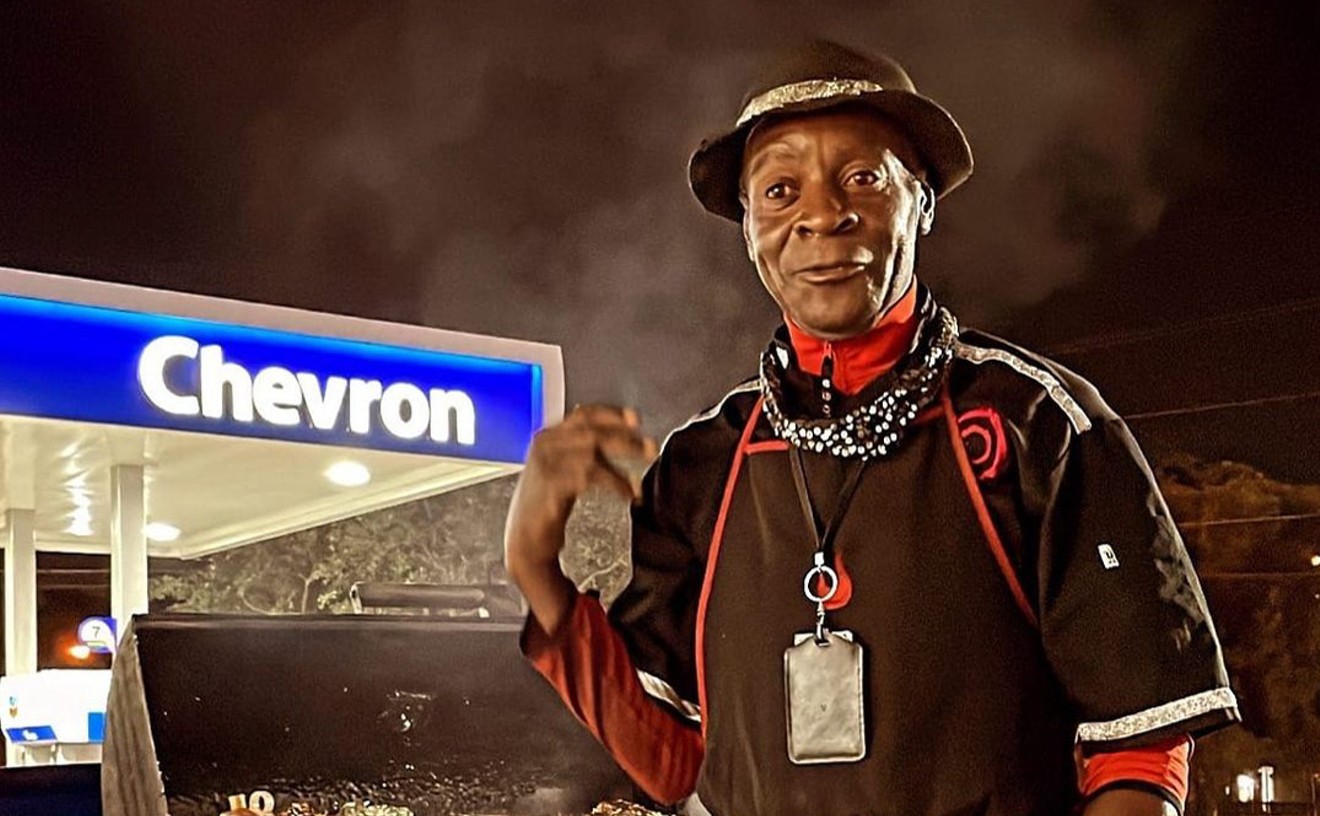Pet rocks died, as all pets eventually do--especially when they are just inanimate hunks of stone. Mood rings turned a permanent, dismal mauve. Leg warmers unraveled. The XFL, well, who really cares? All fads wind up their brief and pointless lives in landfills or antique malls or syndicated television.
But karaoke remains, unabashed and triumphant.
By all standards of popular culture, the marginal attraction of amateurs hopping onstage and belting out "Love Shack" or "Friends in Low Places" to a roomful of laughing inebriates should have worn off long ago. Like 1990 or so. But on weekend nights, wannabe crooners pack Dallas Alley in the West End. At Times Square in Addison, performers wait up to an hour and a half for an opportunity to embarrass themselves in front of strangers. So the Burning Question must ask: Why does karaoke still exist?
"It's stress relief without sex," explains Jeana Fox--much to the dismay of her male friend--after wrapping up a song at Dallas Alley. "Besides, everybody wants to be an entertainer." Karaoke emerged in Japan some 30 years ago, not long after fascination for Japan's previous cultural export, Mothra, faded. Who knew karaoke would fill bars and replace sex? "It gives everybody a chance to have their 15 minutes of fame, or shame," adds Chris O'Hagan, Dallas' aficionado of all things alcoholic. "It's like renting fame."
The word means "empty orchestra," and most of the time the word seems apropos. "I don't turn my head until I hear something good," says Morgan, a bartender at Dallas Alley. He doesn't look up often during a shift. Perhaps some amateur performers should just stay at home.
Many do, in fact. The worldwide market for home karaoke equipment tops $50 billion. At Spotlight on Karaoke in Valley View Mall, home machines sell for $299 up to $1,799. Musicians such as Dwight Yoakam and Marilyn Manson occasionally rent karaoke setups for parties--a disturbing thought. George Strait even plans to perform, empty orchestra style, at Grapevine Mills in June. "I don't consider karaoke a trend because it's been going on for so long," says David Marcus, manager at Spotlight on Karaoke. Professional KJs (karaoke jockeys) account for only 5 percent of Marcus' business.
Despite the undercurrent of popularity, a number of people consider the karaoke phenomenon annoying at best. "Karaoke is for the Dave & Buster's crowd," says Tom with evident disdain. He refused to provide a last name, perhaps fearing a late-night visit by angry karaoke carolers singing "I Will Survive." Others simply refuse to participate, such as the woman who slurred, "I will not get up in a drunken stupor and sing in front of a bunch of people," before the actual stupor took effect.
But long after its introduction into American bars and bowling alleys, karaoke remains. "For some people it builds up self-esteem," says Marcus, explaining the continued attraction of this imported fad. "For others it's the pure joy of singing, and others like the gratification, the thrill of being acknowledged."
Heavy stuff, indeed.
So why does karaoke still exist? Is it the sex thing, the desire for fame, or some pop psychology need for affirmation?
"I haven't done this in eight years," says 'Susan' (too embarrassed to provide a real name thus clearly not in need of affirmation or fame. We didn't ask about sex).
"It's fun."
(Editor's note: Dave "forgot" to mention it here, but while doing research for this article he could be found belting out "We Are Family" at a local karaoke bar. He swears he didn't dance.)










